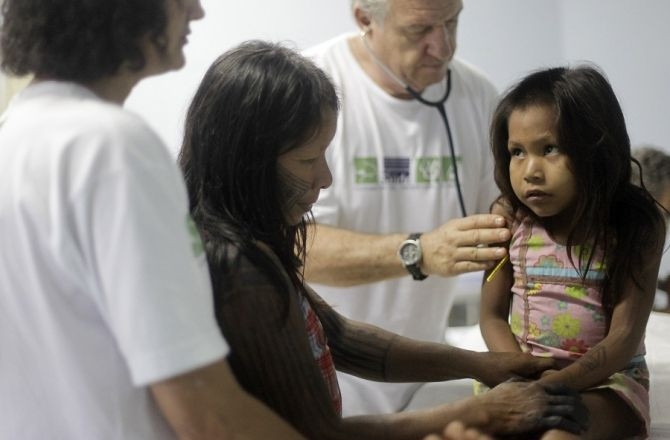Researchers Explain Malaria's Link to Salmonella

When the body’s immune system is weakened and compromised as it tries to protect itself from a malaria infection, a side effect is increased vulnerability to salmonella infections, researchers have found.
The discovery by researchers at the London School of Hygiene & Tropical Medicine marks the first time researchers have been able to explain the link between malaria and salmonella infections, according to researchers at the London School of Hygiene & Tropical Medicine.
The explanation may bring researchers one step closer to more effective treatments.
"It is a widespread belief that malaria is an immunosuppressive disease; that once the disease is contracted, the patient will be susceptible to several other infections because of a compromised immune system. However, this study shows that increased susceptibility to salmonella infections is due to a very specific immunological effect which does not affect the immune system as a whole," said Professor Eleanor Riley, one of the lead authors of the study.
The authors explained that the infection by the malaria parasite periodically causes red blood-cells to burst, releasing the parasite offspring, but also releasing heme, a breakdown product of hemoglobin, which is extremely toxic once outside the red blood cell.
The researchers found that the body’s natural response to defend itself from the dangers of heme in malaria infected mice, “very selectively affects the immune system, crippling the production of white blood-cells that are essential to fight NTS,” explained the authors.
“These crippled cells are unable to kill the bacteria, allowing them to spread freely,” they wrote.
Although the new findings open doors to new research and bring them closer to more effective treatments, the authors say that more careful testing will be needed.
"The key is in the rupture of the red-blood cells," says Dr. Aubrey Cunnington, Clinical Research Fellow at LSHTM and co-author of the study. "Sickle-cell anemia patients, where similar red cell damage occurs, are also more susceptible to NTS. But, numerically speaking, malaria is the most common cause of NTS. Where the incidence of malaria is decreasing, so are the salmonella infections."
The full study funded by the Medical Research Council can be found in Nature Medicine.



























